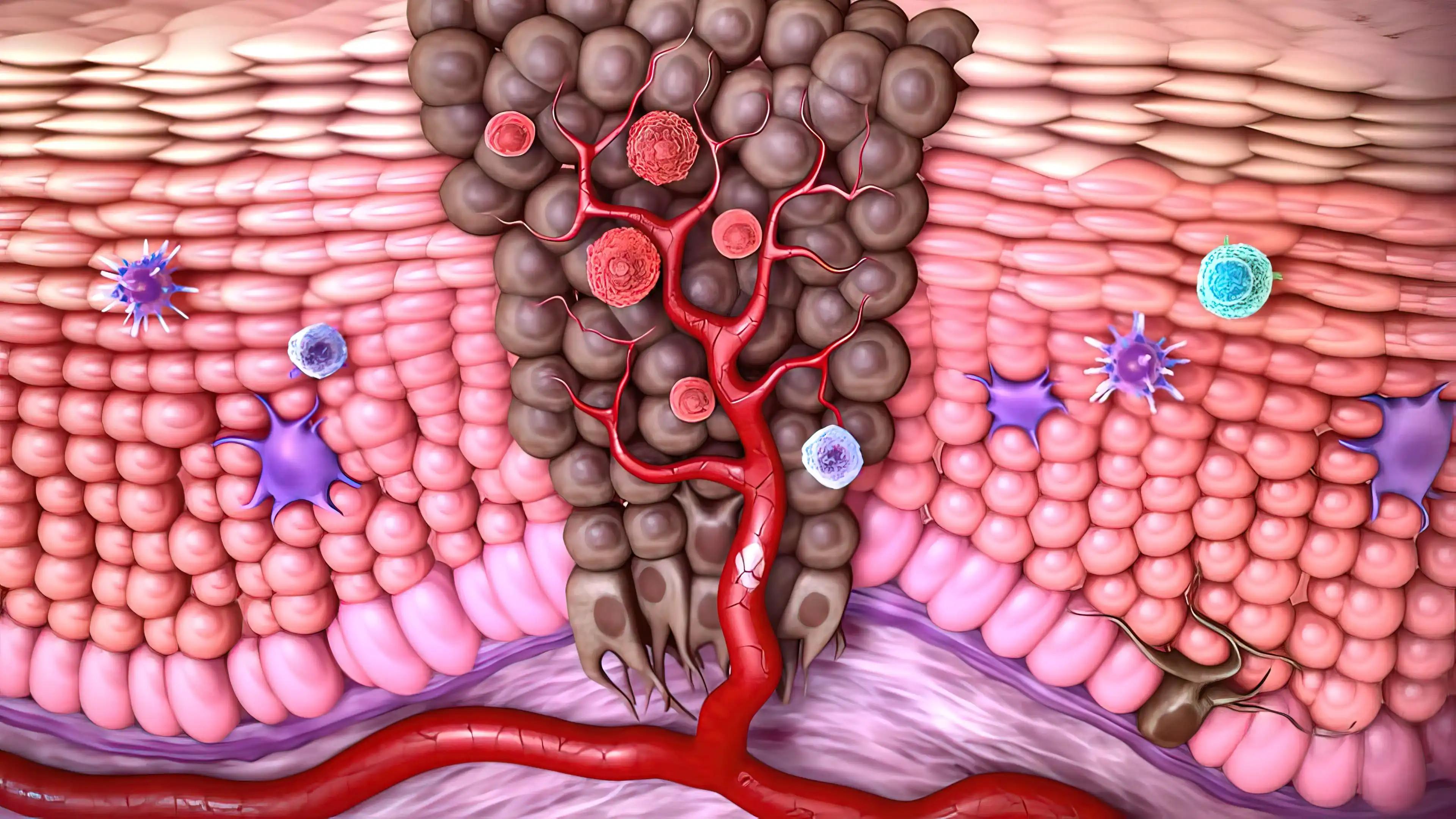KEY TAKEAWAYS
- The phase I/II trial aimed to test the ctDNA assay to predict how gastric and pancreatic cancer pts would respond to CAR-T cell therapy targeting claudin18.2.
- Pts received CAR-T CT041 cell therapy and were monitored for response by RECIST 1.1 criteria.
- The study found that ctDNA predicts response to CAR-T cell therapy in GI cancers, and trials will continue to monitor ctDNA in CT041 CAR-T pts.
Circulating tumor DNA (ctDNA) can be used to measure cancer molecular residual disease (MRD), but there is no data on its use in solid tumors treated with CAR-T cell therapy.
Researchers aimed to test the ctDNA assay to predict how gastric and pancreatic cancer patients (pts) would respond to CAR-T cell therapy targeting claudin18.2.
About 8 pancreatic or gastric cancer pts received CAR-T CT041 cell therapy and were monitored for response by RECIST 1.1 criteria. Their blood was analyzed for ctDNA to see if it could predict response to therapy.
The study measured ctDNA in 10 pts (3/5 gastric and 5/5 pancreatic cancer) before and after CAR-T CT041 cell therapy; all 8 pts had detectable ctDNA before treatment. The median lowest level of ctDNA was reached 14 days after CT041 infusion. Of the 8 pts with detectable ctDNA, 5 (62.5%) became undetectable at some time after CT041 therapy, while 3 (37.5%) remained ctDNA positive throughout treatment. The disease control rate (DCR) was 80% for pts with undetectable ctDNA at any time during treatment (4/5). Of pts with responsive disease after CT041 CAR-T, 2/3 (67%) achieved undetectable ctDNA, and 1/3 (33%) had a 95% reduction in ctDNA. Both pts with stable disease developed undetectable ctDNA. In those pts with progressive disease, 1/3 (33%) had a negative ctDNA at some time during treatment. One patient with a complete response had undetectable ctDNA and target lesion response, then later developed progressive disease detectable by ctDNA 3 months before it was seen on imaging. Overall survival(OS) was higher (9.1 months vs. 3.7 months) in those who achieved undetectable ctDNA during treatment.
The study found that ctDNA predicts response to CAR-T cell therapy in GI cancers, and trials will continue to monitor ctDNA in CT041 CAR-T pts.
Source: https://ascopubs.org/doi/abs/10.1200/JCO.2023.41.16_suppl.4053
Clinical Trial: https://classic.clinicaltrials.gov/ct2/show/NCT04404595
Sindhu Kubendran, Julia L. Boland, Adham A Jurdi, Audrey Ween, Gabriel Baker, Hong Ma, Raffaele Baffa, Zonghai Li, and Gregory P. Botta. DOI: 10.1200/JCO.2023.41.16_suppl.4053 Journal of Clinical Oncology 41, no. 16_suppl (June 01, 2023) 4053-4053.



